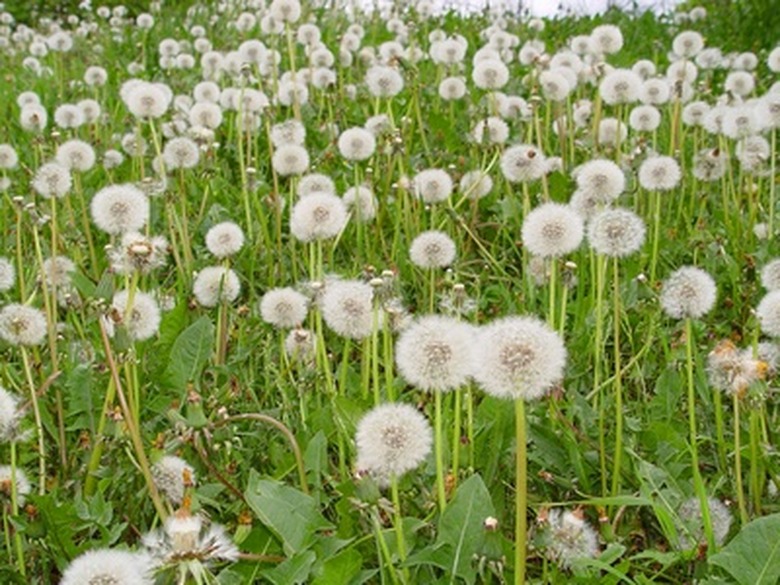The Disadvantages Of Roundup
Homeowners, landscapers and gardeners around the world use Monsanto's Roundup product to control weeds and unwanted vegetation. The glyphosate-based herbicide is sold in all garden stores and nurseries and can help you maintain your landscape's beauty. Certain risks and disadvantages are inherent when using a toxic chemical like glyphosate.
Human Health Risks
If Roundup gets on the skin, is breathed or is ingested, it can cause significant medical problems like skin irritations, vomiting, nausea and diarrhea. Contact with the herbicide should be immediately reported to a medical professional by dialing 911 or calling a poison control center toll-free at 1-800-222-1222.
Metal Reactions
Roundup should never be stored or mixed in a steel tank or container except for stainless steel. According to Monsanto, the chemicals in the herbicide will react with the metal and produce a highly combustible gas. Acceptable container materials include plastic and fiberglass.
- Homeowners, landscapers and gardeners around the world use Monsanto's Roundup product to control weeds and unwanted vegetation.
Non-Selective Killing
Roundup is non-selective and systemic. The herbicide kills all types of vegetation with which it comes in contact, except for plants that have been selectively bred to resist the herbicide. Gardeners and landscapers who are applying Roundup should practice caution to avoid getting the herbicide on desirable vegetation.
Effects on Water Habitats
Landscapers and pond owners sometimes use Roundup to control aquatic weeds by applying the product directly to the water. The herbicide poses some level of risk to aquatic animals and amphibians. In a 2005 study entitled "Ecotoxicological Risk Assessment for Roundup Herbicide" published in the Reviews of Environmental Contamination and Toxicology, researchers said that herbicides were seen to reduce the population level of aquatic wildlife (pg. 100).
- Roundup is non-selective and systemic.
- In a 2005 study entitled "Ecotoxicological Risk Assessment for Roundup Herbicide" published in the Reviews of Environmental Contamination and Toxicology, researchers said that herbicides were seen to reduce the population level of aquatic wildlife (pg.
Weed Resistance
Some weeds may develop a resistance to Roundup, meaning it will no longer work on them. Weed resistance is difficult to predict, according to Monsanto. If you notice resistance to Roundup, call Monsanto at 1-800-667-4944 to report it.
References
- Colby College: Summary of the "Ecotoxicological Risk Assessment for Roundup Herbicide" Study
- "Taylor's Master Guide to Landscaping"; Rita Buchanan; 2000
